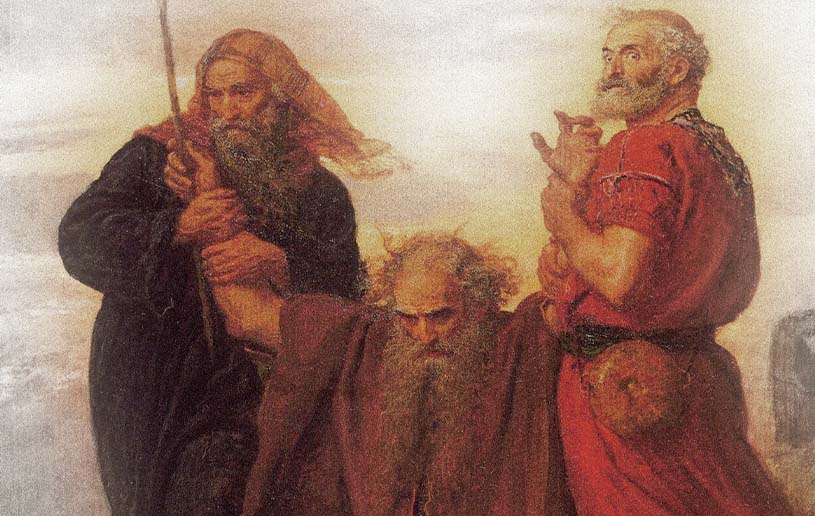
The Old Testament character of Moses is known by character traits such as “leader,” “prophet,” “dedicated,” and “meek.” Even though this is how he is remembered, it’s not where Moses began!
Name
In Exodus 2:10 we read, “Pharaoh’s daughter...named him Moses, for she explained, “I lifted him out of the water.’” In Hebrew the name Moses sounds like the word that means “to lift out.”
Outstanding Characteristics
Dedication and meekness.
Summary
When the Pharaoh of Egypt decreed the death of all Hebrew boys, Moses was placed by his mother in a basket in the Nile River. Pharaoh’s daughter found him and raised him in the palace. At the age of 40 Moses saw a Hebrew slave being beaten by an Egyptian and so Moses killed him. To escape Pharaoh, Moses fled to Midian. When he was 80 years old, God called him from a burning bush to lead Israel out of Egypt. Feeling inadequate Moses reluctantly obeyed. But God was with Moses in a miraculous way enabling him to bring plagues on Egypt and then lead the Israelites from Egypt to Canaan for 40 years. Moses received God’s Law for His people, selected the judges, and built the tabernacle. Disallowed from entering the Promised Land for losing his temper Moses died in sight of Canaan on Mount Nebo.
Key Scripture
“It was by faith that Moses, when he grew up, refused to be called the son of Pharaoh’s daughter. He chose to share the oppression of God’s people instead of enjoying the fleeting pleasures of sin. He thought it was better to suffer for the sake of Christ than to own the treasures of Egypt, for he was looking ahead to his great reward.” (Hebrews 11:24–26)
Lessons Learned
1. Persistence
Our past failures sometimes hold us back. They make us feel that we have no power. But it does not need to be like this. They need not stop us from doing great things for God. Through them we can learn to have a servant’s heart that rests and relies on God instead of promoting ourselves and our agenda. God prefers to use those who have failed (Exodus 2:16–17).
2. Confidence in Christ
Moses suffered from an inferiority complex. He believed he couldn’t do or say anything. But when he surrendered who he was and what he had to the Lord, then by faith it became true for him as it was the Apostle Paul who said, “For I can do everything through Christ, who gives me strength” (Philippians 4:13). The simple shepherd’s staff of Moses became “the staff of God” (Exodus 4:20). Who are you and what’s in your hand that you can surrender to God?
3. Meekness and availability
God may call someone who feels disqualified and inadequate in order to accomplish a task (Exodus 3, 4). He isn’t as interested in our ability as in our availability. God is looking for someone with ears to hear His voice, hands ready to do His work, and a heart that believes His Word and is willing to respond.
4. Partnership in leading
One cannot effectively do ministry alone. Moses needed Aaron. It’s also necessary to delegate responsibilities to other leaders (Exodus 18:13–26). Learn the difference between what is essential for you to do and what is incidental. Doing less often results in greater effectiveness.
5. Self-control
Moses lost his temper numerous times (Exodus 2:11, 12; 11:8; 32:15-20; Numbers 20:1–12) and because he didn’t control it, anger ultimately caused him to forfeit his entrance into the promised land. Although God is gracious and forbearing, He is also just in causing Moses to ultimately suffer the consequences of his sin. “Human anger does not produce the righteousness God desires” (James 1:20). Are there character or behavioural issues in your life you need to get under control before you lose out because of them?
6. Dedication
Focusing on Christ and His reward for a life of faith is essential to dealing with adversity, opposition, and rejection (Hebrews 11:24-26). The pleasures of sin and the problems of this world will pass away. Heaven and its rewards are forever.
Moses, a leader and prophet who was meek and dedicated to the Lord, teaches us through his life story that where you start is not where you end up, with God’s help, and failure is never final.

